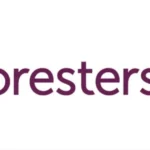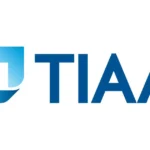Introduction
“To find out who owns a business, you can check official records, search online directories, or consult the company’s website.”
Determining who owns a business can be crucial for various reasons, such as verifying the legitimacy of a company, understanding its management structure, or conducting due diligence before forming a partnership or making an investment.
Whether you’re a consumer, a potential investor, or a competitor, knowing the ownership of a business can provide valuable insights and help you make informed decisions.
In this comprehensive guide, we will explore a range of methods to uncover business ownership, offering practical advice and tips to assist you in your search.
Check Business Registration Records
Business registration records are official documents that provide information about the establishment and ownership of a business.
These records are often maintained by state or local government agencies and can offer detailed insights into who owns a business. To access these records:
- Visit the Secretary of State’s Website: Most states have an online portal where you can search for business entities by name. This search will usually reveal the names of the business owners or officers.
- Check Local Government Websites: In some areas, business registration may be handled at the county or city level. Visit the relevant local government website to access these records.
- Request Information in Person: If online access is not available, you may need to visit the appropriate government office in person to request the business registration records.
Search Online Business Directories
Online business directories aggregate information about businesses, including their ownership. These directories can be a quick way to find out who owns a business. Popular directories include:
- Yellow Pages: A classic directory with extensive business listings.
- Yelp: Often includes business profiles with owner information.
- LinkedIn: Many businesses have profiles on LinkedIn that may list key personnel, including owners.
By searching these directories, you can often find the names of business owners or contact information that leads to further details.
Consult the Business’s Website
Many businesses provide information about their ownership on their official websites. To find this information:
- Check the About Us Page: This page often includes information about the company’s history and leadership.
- Look for Leadership Bios: Larger companies may have dedicated sections for their executive team, including the owners or founders.
- Review Press Releases: Companies often announce new ownership or significant changes in their press releases, which can be found in the news or media section of their website.
Review Business Filings and Reports

Business filings and reports can provide detailed information about a company’s ownership. These documents may include:
- Annual Reports: Often include information about the company’s officers and directors.
- Form 10-K: For publicly traded companies, this form filed with the SEC includes detailed information about the company’s structure and management.
- Form 990: Nonprofits must file this form, which often includes information about key personnel.
You can access these filings through the company’s website, the SEC’s EDGAR database, or other regulatory bodies.
Use Professional Networking Sites
Professional networking sites, such as LinkedIn, can be valuable tools for uncovering business ownership. Here’s how:
- Search for the Business: Look for the company’s profile on LinkedIn, which may list key employees, including the owner.
- Check Employee Profiles: Often, employees will list their position and affiliation, providing clues about the company’s leadership.
- Join Industry Groups: Networking groups related to the industry may provide additional insights or contacts who can confirm ownership.
Visit Local Government Offices
Local government offices can be a source of detailed information about business ownership. Depending on the jurisdiction, you may need to visit:
- County Clerk’s Office: They maintain records of business licenses and registrations.
- City Hall: For local business permits and other relevant documents.
- Municipal Offices: Some municipalities keep detailed records of business ownership and operational licenses.
Check Property Records

If the business owns property, the property records can provide clues about ownership. To check property records:
- Visit the County Assessor’s Office: They maintain records of property ownership, which may list the business as the property owner.
- Search Online Property Databases: Many counties have online databases where you can search for property ownership information.
- Review Deeds and Mortgages: Property deeds and mortgage records often include the name of the business owner.
Review Court Records
Court records can provide insights into business ownership, particularly if there have been legal disputes involving the business. To review court records:
- Search Online Court Databases: Many courts have online databases where you can search for cases involving the business.
- Visit the Courthouse: For detailed records, you may need to visit the courthouse where the case was filed.
- Review Legal Filings: Court documents often list the business owners involved in legal disputes.
Analyze Business News and Media Coverage
Business news and media coverage can offer information about ownership changes and company leadership. To analyze media coverage:
- Search News Outlets: Look for news articles about the business that mention ownership changes or key personnel.
- Use Media Databases: Services like LexisNexis provide access to a wide range of news articles and business reports.
- Follow Industry News: Industry-specific publications may have detailed reports on business ownership and management changes.
Contact the Business Directly
If other methods have not yielded results, contacting the business directly may be the most straightforward approach. Here’s how:
- Call the Business: Ask to speak with someone who can provide information about ownership.
- Send an Email: Request information about the business owner through email.
- Visit the Business: If feasible, visit the business in person and inquire about ownership.
Utilize Business Credit Reports
Business credit reports can provide detailed information about a company’s financial history and ownership. To obtain a credit report:
- Contact Credit Reporting Agencies: Agencies like Dun & Bradstreet or Experian provide business credit reports.
- Request a Report: You may need to pay a fee to access the report, which often includes information about business owners and key personnel.
- Review the Report: Analyze the report for details about the business’s management and ownership.
What Does Business Chat Mean on Instagram?
Network with Industry Contacts

Networking with industry contacts can provide insights into business ownership. To leverage your network:
- Attend Industry Events: Meet people who may have knowledge about the business.
- Join Professional Associations: Membership in industry associations can connect you with knowledgeable individuals.
- Reach Out to Contacts: Ask your industry contacts if they have information about the business.
Importance of Finding Out Who Owns a Business
Knowing who owns a business can be crucial for several reasons:
- Verification: Ensures the legitimacy of the business.
- Due Diligence: Helps in assessing risks before making investments or partnerships.
- Accountability: Understanding ownership can be important for resolving disputes or addressing concerns.
- Networking: Knowing the owner can open opportunities for business relationships or collaborations.
Additional Tips
- Be Persistent: If initial searches don’t yield results, try multiple methods or combinations. Sometimes, persistence and exploring less obvious sources can lead to the information you need.
- Verify Information: Cross-check details from various sources to ensure accuracy. This can help avoid misinformation and ensure that the data you gather is reliable.
- Respect Privacy: Ensure your search for information complies with legal and ethical standards. Always be mindful of privacy laws and regulations when seeking personal or sensitive information.
- Use Professional Services: If your search is particularly challenging or complex, consider hiring a professional investigator or using specialized business intelligence services that can provide detailed ownership information.
- Keep Records: Document your search process and findings. This can help you track what you’ve already checked and assist in following up on any leads.
Pro and Cons
| Method | Pros | Cons |
| Check Business Registration Records | – Official and reliable source of information.<br>- Provides detailed ownership data. | – May require visiting government offices.<br>- Information may not be up-to-date. |
| Search Online Business Directories | – Quick and easy to use.<br>- Often includes owner or key personnel information. | – Information may be incomplete or outdated.<br>- May not be available for all businesses. |
| Consult the Business’s Website | – Direct source from the business.<br>- Provides current and specific details. | – Not all businesses provide detailed ownership info.<br>- Websites may not be updated regularly. |
| Review Business Filings and Reports | – Detailed and comprehensive information.<br>- Includes financial and management details. | – Access may require payment.<br>- Can be complex to interpret. |
| Use Professional Networking Sites | – Provides insights from industry contacts.<br>- Useful for understanding business context. | – May require networking effort.<br>- Information may not be official or verified. |
| Visit Local Government Offices | – Access to official records.<br>- Can provide localized ownership details. | – May require in-person visits.<br>- Can be time-consuming. |
| Check Property Records | – Reveals ownership of physical assets.<br>- Can be a useful clue to business ownership. | – May not always include business owner details.<br>- Requires specific property information. |
| Review Court Records | – Provides legal context and details about ownership disputes.<br>- Can be detailed. | – May involve lengthy searches.<br>- Information may be legalistic and complex. |
| Analyze Business News and Media Coverage | – Provides current updates and changes.<br>- Can offer context and insights. | – May not always provide specific ownership details.<br>- Requires sifting through various sources. |
| Contact the Business Directly | – Direct and straightforward method.<br>- Can provide the most accurate information. | – May not always yield results.<br>- Responses can vary based on the business’s willingness to disclose. |
| Utilize Business Credit Reports | – Detailed financial and ownership information.<br>- Provides insights into business health. | – Access may require payment.<br>- May not be available for all businesses. |
| Network with Industry Contacts | – Provides insider knowledge.<br>- Can be useful for understanding business dynamics. | – Information may not be official.<br>- Requires active networking and relationship building. |
FAQs
1. How can I access business registration records?
You can access business registration records through the Secretary of State’s website, local government offices, or in person at the relevant agency. Many states offer online search tools for this purpose.
2. What information is typically found in a business credit report?
A business credit report usually includes details about the company’s financial history, creditworthiness, ownership, and key personnel. It may also highlight any past or current financial issues.
3. Are there any online tools that can help me find business ownership information?
Yes, online business directories like Yellow Pages, Yelp, and LinkedIn can provide valuable information about business ownership. Additionally, professional networking sites and business credit report services offer insights into ownership and management.
4. How do I find out who owns a business if it is not listed in online directories?
If the business is not listed online, try checking business registration records, reviewing property records, or contacting the business directly. Local government offices and industry contacts can also be helpful.
5. What should I do if I cannot find ownership information through traditional methods?
If traditional methods fail, consider reaching out to industry associations or professional networks for assistance. Additionally, legal and professional services may offer specialized tools and advice for uncovering ownership information.
By following the outlined methods and leveraging the tips provided, you can enhance your ability to find accurate and reliable information about business ownership.
Business Registration Record
| Field | Information |
| Business Name | XYZ Enterprises, Inc. |
| Owner Name | John Smith |
| Registration Date | January 15, 2020 |
| Status | Active |
| Business Type | Corporation |
Conclusion
Discovering who owns a business is a multifaceted process that involves utilizing various resources and methods. From checking business registration records and exploring online directories to consulting property records and analyzing media coverage, each method offers unique insights.
By combining these approaches and being diligent in your search, you can obtain a clear and accurate understanding of business ownership. This information is crucial for making informed decisions, conducting due diligence, and ensuring transparency in your business dealings.
Whether you’re a consumer, investor, or industry professional, knowing how to effectively find and verify business ownership can provide significant advantages and peace of mind.

Hi, I’m Amaliyah-Richard! I’m a dedicated author at Skyvoxes. I hold a Bachelor’s degree in Business, and I love writing about all things business. My aim is to make complex business topics easy to understand and accessible for everyone. Whether you’re a seasoned professional or just starting out, I hope my articles provide you with valuable insights and practical advice.










